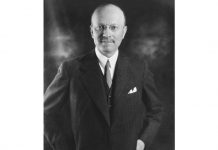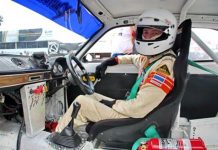Well, we learned that it isn’t over until it’s over! The podium with Fernando Alonso (Ferrari), followed by Raikkonen (“Lotus”) and Schumacher (Mercedes) was an incredible result that could not have been predicted, even at mid-distance. It also showed the depth of the influence of Ferrari, with all three drivers world champions, one a current Ferrari driver and the other two ex-Ferrari champions.
Contrary to previous Grands Prix at the Valencia track, there was a feast of overtaking, with most of the overtaking moves not produced by the artificial DRS boost. With the example being given by some of the younger drivers in the field who are not afraid to risk all in a passing maneuver, the drivers began to push and find their way around the cars in front. However, not all moves were successful, and some were just hopelessly optimistic. The aggressive nature of the racing in lower formulae such as GP2 (or Touring cars) is now the norm in F1 it seems. Vergne (Toro Rosso) driving into Kovalainen (Caterham), Maldonado (Williams) into Hamilton (McLaren), Kobayashi (Sauber) into Senna (Williams) and again into Massa (Ferrari). There were more, but that is enough to show just how F1 has changed from a competition between gentlemen drivers to a scrum of rugby league front rowers.
I have always considered car electrics (and now electronics) a black art, and undoubtedly both Vettel (Red Bull) and Grosjean (“Lotus”) would agree with me. Both sailing along, well within themselves and their cars and suddenly the fire goes out and their race is over. Up till that point, Vettel was getting his infamous finger ready and Grosjean was singing the Marsellaise. It would have certainly been a podium for the Frenchman, who has shown an amazing improvement this year, despite his DNF’s earlier in the season. At this stage their failures are being put down to alternator problems. Are they both running Lucas, I wonder?
Returning to the winner Fernando Alonso, he has become today’s answer to ‘The Professor’ Alain Prost. He has matured into a very clever and talented competitor and a long way from the sulky Spaniard of a few years ago. While it is obvious that his win was assisted by Vettel’s electrical woes, nevertheless he deserved the win, having not let up for the entire race distance.
Michael Schumacher’s third place was an overdue podium. He has now become the second oldest driver to stand on the podium since Black Jack Brabham about 40 years ago. While that may be so, let us not forget that Juan Manuel Fangio was 45 years old when he was winning world championships, driving very difficult race cars in Grands Prix lasting three hours. And they didn’t spend their time hitting other drivers off the track. Nor did they spend their time nursing tyres which only last 10 laps, but got on with the job of “racing”.
Mark Webber (Red Bull) had an amazing race after a diabolical qualifying which left him 19th on the grid, to eventually finish fourth. The Aussie is now second in the world championship table after Alonso.
It was an exciting GP, even though part of the closeness in running has been produced by ‘artificial’ means such as degrading tyres, DRS and KERS. However, as much as the enthusiasts yearn for the competitive driving of the days of yore, I think we have to accept that the new order is here and is not going to change in a hurry.




